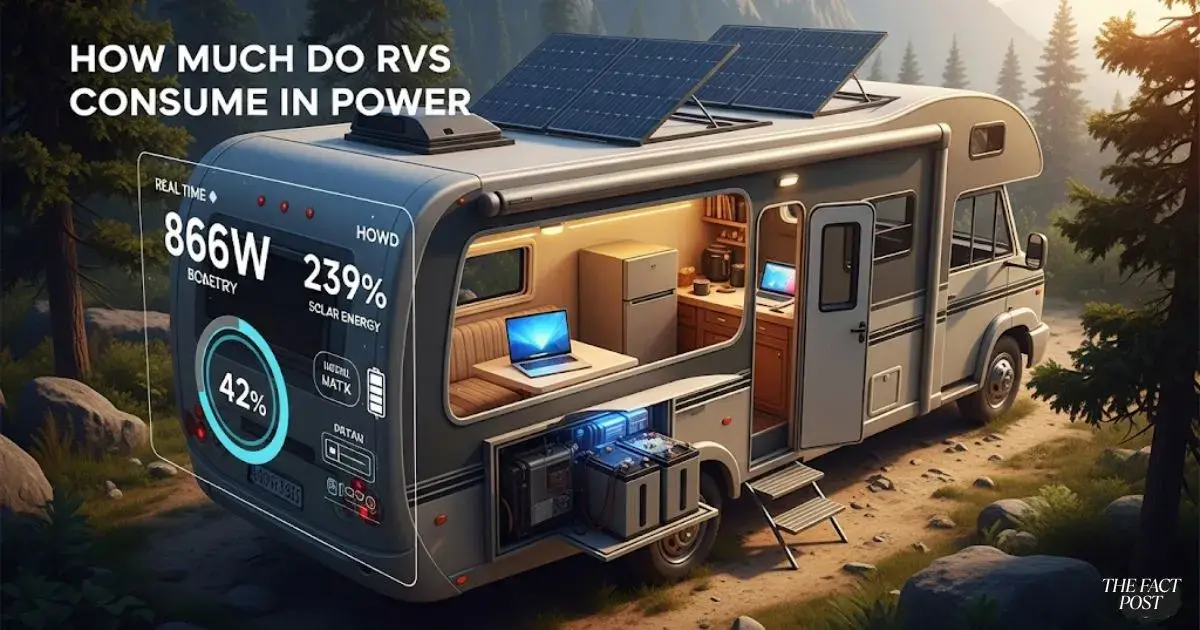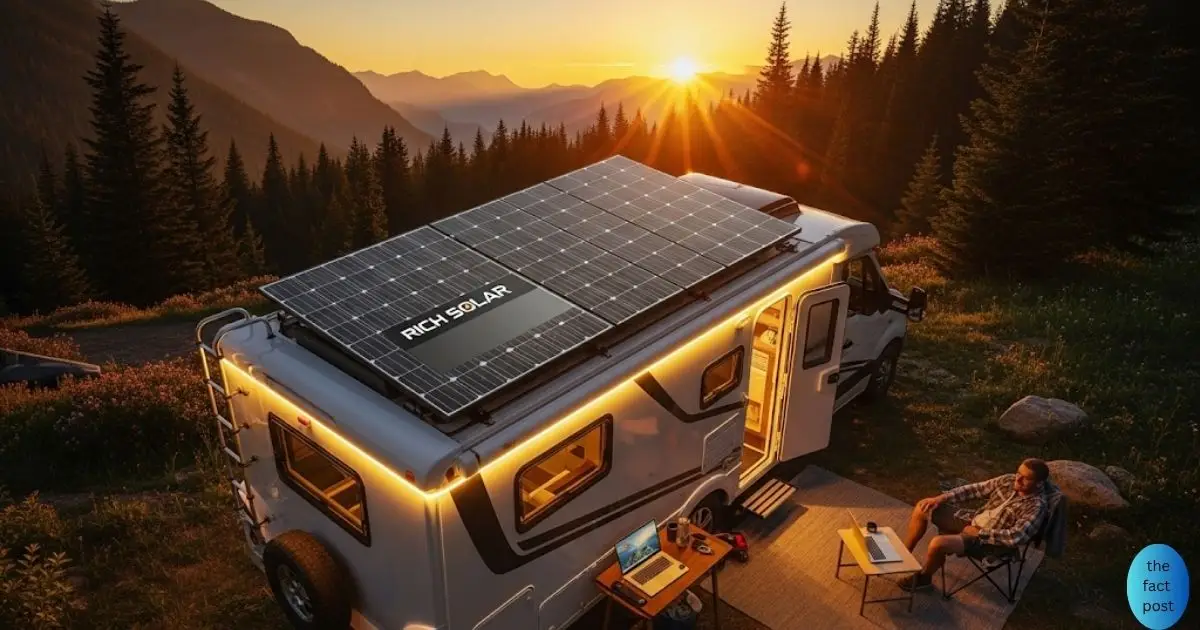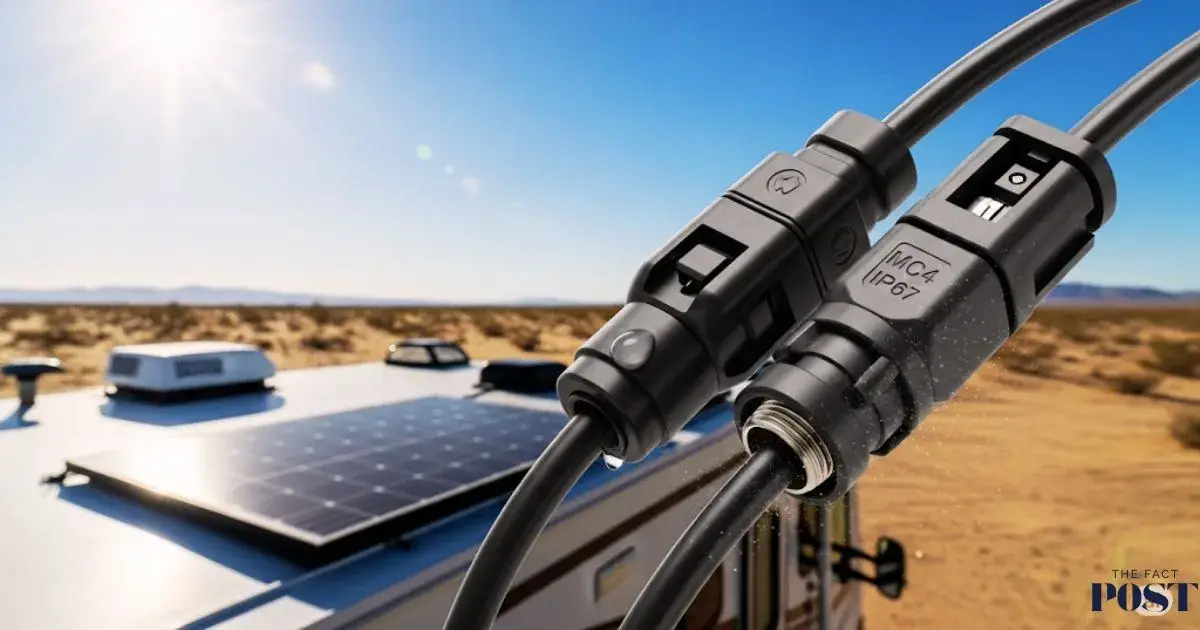How Much Do RVs Consume In Power? An Expert’s Take #1
TOC:
Table of Contents
How much do RVs consume in power?
It’s a question every RV owner or future road-tripper eventually asks—and for good reason. Understanding your power usage is essential whether you’re weekend camping or living full-time in a motorhome. From charging phones to running air conditioning, your daily electrical needs can vary widely depending on your lifestyle and equipment.
Knowing how much power your RV consumes helps you plan the right solar setup, battery bank, and even generator use. In this guide, we’ll explore real-world data and expert insights to help you manage energy like a pro on the road.
Getting to Grips with RV Power Consumption: What’s It All About?
At its essence, RV power consumption refers to the amount of electricity you use each day, measured in watts, ampere-hours, or kilowatt-hours. This encompasses every appliance in your RV, from the refrigerator and lights to your laptop, air conditioning, and even that trusty coffee maker.
Daily Power Usage by Appliance
Here’s a practical breakdown based on a Class C RV equipped with standard features:
| Appliance | Wattage | Hours/Day | Daily Watt-Hour Use |
|---|---|---|---|
| LED Lights | 20W | 4 | 80Wh |
| 12V Refrigerator | 60W | 24 | 1,440Wh |
| Water Pump | 100W | 0.5 | 50Wh |
| Phone Charging | 20W | 3 | 60Wh |
| Laptop Use | 60W | 3 | 180Wh |
| Microwave (inverter) | 1,000W | 0.2 | 200Wh |
| Coffee Maker | 800W | 0.15 | 120Wh |
Total Daily Use: ~2,130Wh or 2.1kWh
That’s your starting point. If you plan to use air conditioning, be sure to add at least 1.2–1.5kWh for just two hours of use.
Power Sources for RVs
Most RV owners rely on a mix of:
1. Shore Power
Plugging into shore power at campsites gives you unlimited electricity—just like being at home. You won’t have to worry about running out unless the park has amperage limits.
2. Solar Power Systems
Solar panels harness sunlight to generate energy, which is then stored in batteries.
- Perfect for off-the-grid adventures
- Quiet and environmentally friendly
- Requires careful planning of solar panel capacity based on your daily power needs
3. Generator Power
Engine generators are noisy but dependable.
4. Batteries and Inverters
Batteries are essential for storing power, while power inverters play a crucial role in converting that power from direct current (DC) to alternating current (AC), making it usable for your everyday appliances.
The Role of Electric Batteries in RV Power Consumption
When it comes to solar-powered RV setups, electric battery banks are the backbone. Here’s what you’ll typically find:
- VRLA battery (Valve Regulated Lead-Acid): More affordable but heavier and less efficient.
- Lithium-ion battery: Lightweight, long-lasting, and much more efficient.
How Much Battery Do You Need?
If your daily consumption is around 2.1kWh:
- For a VRLA battery (50% usable), you’ll need about 400Ah at 12V.
- With a lithium battery (80% usable), you only need between 220 and 250Ah.
Personally, I use a 300Ah lithium bank and can comfortably stay off-grid for 4 to 5 days before needing a full solar recharge.
Case Study: A Week of Power Use in My Campervan
During a 7-day road trip, I kept track of my power usage:
- Average Daily Use: 2.2kWh
- Solar System: 600W rooftop solar panels
- Battery Bank: 300Ah Lithium iron phosphate
- Power Inverter: 2000W pure sine wave
I managed to power lights, a fridge, two laptops, a fan, a microwave, and even ran my air conditioning for an hour each day while using shore power at two stops. I only dipped below 30% battery once, which happened during three cloudy days. Thankfully, the solar panels quickly made up for it once the sun came back out.
How Inverter Efficiency Affects Power Use
Inverters are vital components that often don’t get the attention they deserve. A low-quality power inverter can actually drain more power than necessary.
- Pure sine wave inverters are not only more efficient but also safer for your electronics.
- A budget inverter can waste as much as 15–20% of your battery energy.
I suggest investing between $150 and $400 in a reliable power inverter that boasts high wave efficiency and built-in protections.
The Big Power Eaters: What to Keep an Eye On
When it comes to RV appliances, some are notorious for guzzling power:
- Microwave ovens: They can draw over 1000W, even if you’re just using them for a quick minute.
- Air conditioning: Expect a hefty pull of 1200–1500W — it really adds up.
- Electric water heaters: Usually around 1400W or more.
Pro Tip: Whenever you can, opt for propane for heating and hot water. It can significantly cut down your electricity needs.
Ampere-Hour vs. Kilowatt-Hour: Breaking Down the Basics
- Ampere-hour (Ah) tells you how much capacity you have at a certain voltage (typically 12V in RVs).
- Kilowatt-hour (kWh) measures how much energy you use over time.
Conversion Example:
100Ah at 12V gives you about 1.2kWh of usable energy.
If your RV consumes 2.1kWh per day, you’d need close to 200Ah of lithium battery capacity to last a full day.
RV Size and Power Usage
Bigger RVs tend to use more power:
- Class B (Campervan): Roughly 1.2–1.8kWh per day.
- Class C RV: About 2–2.5kWh per day.
- Class A or 5th Wheel: 3kWh or more daily, especially if you’re using home appliances like standard refrigerators.
FAQs: What’s the Power Consumption of RVs?
Q1: What’s the typical power usage for an RV?
Most RVs fall between 1.5–3kWh per day, depending on their size, the appliances you have, and your lifestyle choices.
Q2: Is it possible to live off-grid using just solar power?
Absolutely! With a setup of 400W–800W of solar panels and a 200–400Ah battery, many RV enthusiasts thrive off-grid.
Q3: How many solar panels will I need?
To estimate the solar wattage, divide your daily power needs (in kWh) by 5.
For example: 2kWh ÷ 5 hours = a 400W solar panel array.
Q4: What’s the cost of a solar power system?
Prices can range from $800 to $4,000, depending on the components like solar panels, batteries, and inverters.
Q5: What really drains your RV’s power?
Well, the big culprits are air conditioning, microwaves, and electric water heaters—they’re the top three energy hogs.
Final Thoughts: Understanding and Managing Your RV Power Use
When it comes to How Much Do RVs Consume In Power, it’s not just about crunching numbers; it’s about shaping a lifestyle that works for you. Whether you’re out chasing sunsets or living the full-time RV life, getting a grip on your energy habits is essential.
- Start with a power audit: Keep tabs on everything you use.
- Make sure your solar panel and battery systems are the right size for your needs.
- Opt for high-efficiency appliances and power inverters.
- Find the right balance between solar power, shore power, and the occasional generator.
🔋 What’s Your Next Move? Plan Smarter, Travel Further.
Take a moment to estimate your energy needs, pick the right gear, and invest in quality components. This way, you’ll enjoy more freedom, save on hookups, and lessen your environmental footprint.
Need a hand with your off-grid power system? Feel free to drop a comment below or reach out—I’m here to help you travel further, cleaner, and smarter.





10 comments